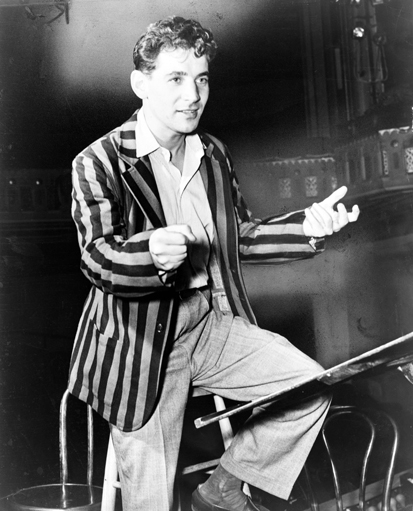Nigel Simeone’s title for his edition of Leonard Bernstein’s correspondence rings compellingly, novellistically, through the force of the definite article, as in The Aspern Papers, or The Scarlet Letter. The reality, though, is more diffuse. Bernstein was a man of enormous endowments. One correspondent, after listing his talents as a composer, orchestrator, pianist, conductor, lecturer and general all-round musical functionary, ends by enquiring ironically, ‘Can you cook?’
The list might have been extended. It could have included a wild diversity of sexual activity, a seemingly limitless gift for affection and friendship, an inexhaustible capacity for work, and a genius for self-promotion. What it could hardly have included was focus. ‘Is your mission in life,’ one old friend demands pettishly, ‘to be the greatest of all dilettantes?’ Bernstein himself discovers later on from ‘an old book of Chinese divination that my problem is one of self-limitation’. The Chinese, as usual, were right. If one thing emerges more than anything else from this lifetime of letters, it’s that even the most cornucopian talents can be spread too thin.
And if this sounds like a harsh judgment on a man who was unquestionably one of the most brilliant conductors of his generation, we have only to refer to his own opinion on the matter. ‘I’ve never felt so strongly,’ he writes to his sister as early as 1950, ‘how through I am with the conductor-performer life… and how ready I am for inner living, which means composing and [his wife] Felicia.’ Thereafter, he wrote one unquestionable masterpiece, West Side Story, ruined his marriage with gay affairs, and became for 30 years the epitome of the great maestro of the rostrum, the recording studio and the TV screen, before his death in 1990.








Comments
Join the debate for just £1 a month
Be part of the conversation with other Spectator readers by getting your first three months for £3.
UNLOCK ACCESS Just £1 a monthAlready a subscriber? Log in